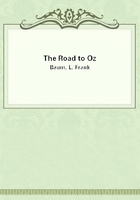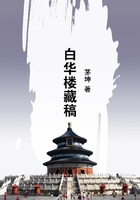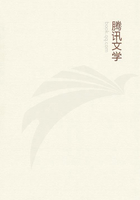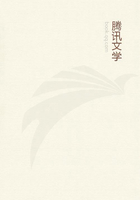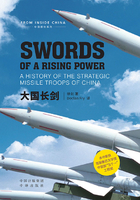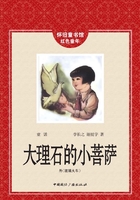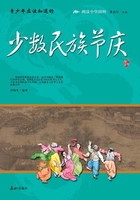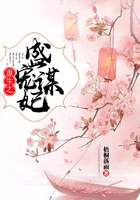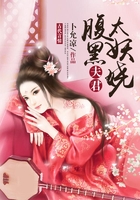The Greek language is being ousted from education, here, in France, and in America. The speech of the earliest democracies is not democratic enough for modern anarchy. There is nothing to be gained, it is said, by a knowledge of Greek. We have not to fight the battle of life with Hellenic waiters; and, even if we had, Romaic, or modern Greek, is much more easily learned than the old classical tongue. The reason of this comparative ease will be plain to any one who, retaining a vague memory of his Greek grammar, takes up a modern Greek newspaper. He will find that the idioms of the modern newspaper are the idioms of all newspapers, that the grammar is the grammar of modern languages, that the opinions are expressed in barbarous translations of barbarous French and English journalistic cliches or commonplaces. This ugly and undignified mixture of the ancient Greek characters, and of ancient Greek words with modern grammar and idioms, and stereotyped phrases, is extremely distasteful to the scholar. Modern Greek, as it is at present printed, is not the natural spoken language of the peasants.
You can read a Greek leading article, though you can hardly make sense of a Greek rural ballad. The peasant speech is a thing of slow development; there is a basis of ancient Greek in it, with large elements of Slavonic, Turkish, Italian, and other imposed or imported languages. Modern literary Greek is a hybrid of revived classical words, blended with the idioms of the speeches which have arisen since the fall of the Roman Empire. Thus, thanks to the modern and familiar element in it, modern Greek "as she is writ" is much more easily learned than ancient Greek. Consequently, if any one has need for the speech in business or travel, he can acquire as much of it as most of us have of French, with considerable ease.
People therefore argue that ancient Greek is particularly superfluous in schools. Why waste time on it, they ask, which could be expended on science, on modern languages, or any other branch of education? There is a great deal of justice in this position. The generation of men who are now middle-aged bestowed much time and labour on Greek; and in what, it may be asked, are they better for it? Very few of them "keep up their Greek." Say, for example, that one was in a form with fifty boys who began the study--it is odds against five of the survivors still reading Greek books. The worldly advantages of the study are slight: it may lead three of the fifty to a good degree, and one to a fellowship; but good degrees may be taken in other subjects, and fellowships may be abolished, or "nationalised," with all other forms of property.
Then, why maintain Greek in schools? Only a very minute percentage of the boys who are tormented with it really learn it. Only a still smaller percentage can read it after they are thirty. Only one or two gain any material advantage by it. In very truth, most minds are not framed by nature to excel and to delight in literature, and only to such minds and to schoolmasters is Greek valuable.
This is the case against Greek put as powerfully as one can state it. On the other side, we may say, though the remark may seem absurd at first sight, that to have mastered Greek, even if you forget it, is not to have wasted time. It really is an educational and mental discipline. The study is so severe that it needs the earnest application of the mind. The study is averse to indolent intellectual ways; it will not put up with a "there or thereabouts,"any more than mathematical ideas admit of being made to seem "extremely plausible." He who writes, and who may venture to offer himself as an example, is naturally of a most slovenly and slatternly mental habit. It is his constant temptation to "scamp"every kind of work, and to say "it will do well enough." He hates taking trouble and verifying references. And he can honestly confess that nothing in his experience has so helped, in a certain degree, to counteract those tendencies--as the labour of thoroughly learning certain Greek texts--the dramatists, Thucydides, some of the books of Aristotle. Experience has satisfied him that Greek is of real educational value, and, apart from the acknowledged and unsurpassed merit of its literature, is a severe and logical training of the mind. The mental constitution is strengthened and braced by the labour, even if the language is forgotten in later life.
It is manifest, however, that this part of education is not for everybody. The real educational problem is to discover what boys Greek will be good for, and what boys will only waste time and dawdle over it. Certainly to men of a literary turn (a very minute percentage), Greek is of an inestimable value. Great poets, even, may be ignorant of it, as Shakespeare probably was, as Keats and Scott certainly were, as Alexandre Dumas was. But Dumas regretted his ignorance; Scott regretted it. We know not how much Scott's admitted laxity of style and hurried careless habit might have been modified by a knowledge of Greek; how much of grace, permanence, and generally of art, his genius might have gained from the language and literature of Hellas. The most Homeric of modern men could not read Homer. As for Keats, he was born a Greek, it has been said; but had he been born with a knowledge of Greek, he never, probably, would have been guilty of his chief literary faults. This is not certain, for some modern men of letters deeply read in Greek have all the qualities of fustian and effusiveness which Longinus most despised.
Greek will not make a luxuriously Asiatic mind Hellenic, it is certain; but it may, at least, help to restrain effusive and rhetorical gabble. Our Asiatic rhetoricians might perhaps be even more barbarous than they are if Greek were a sealed book to them.

